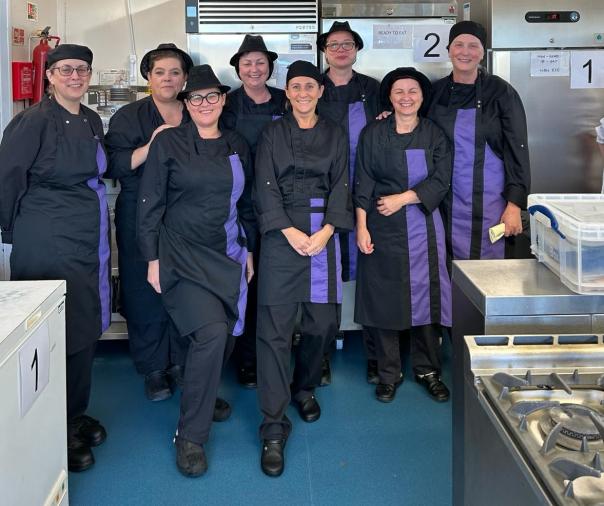LACA’s Professional Standards help improve knowledge, skills & behaviour

Lisa Fox, catering operations manager at Nottingham City Council, is in no doubt about the value of LACA’s workforce development standards.
She says: “We chose to use the Professional Standards to enhance the skills of our Catering Supervisors through a deliberate investment in their professional development. By designing a comprehensive training programme based on LACA’s Workforce Development Professional Standards, we focused on essential business skills and practical development for our Catering Supervisors.”
The three key objectives were :
• Knowledge (Know it)
• Skills (Show it)
• Behaviours (Live it)
“Our aim was to foster strong working relationships among Catering Supervisors, encouraging them to learn from each other, share experiences, and exchange valuable tips and knowledge.
“This not only facilitated team-building but also made them feel integrated into the broader catering service. Additionally, the programme was designed to equip them with the tools to effectively develop their own teams, ensuring a ripple effect of enhanced skills and professionalism throughout our organisation.”
She said the Professional Standards were user-friendly and easy to adapt into their own training programme.
“By aligning our training with the aims, objectives, and outcomes outlined in the standards, we were able to create a comprehensive and effective development programme. This has not only streamlined our training process but also ensured that we are meeting industry benchmarks and best practices.”
Assessing the value of the Standards, she added: “They offer extensive information that is highly relevant to our industry. We’ve utilised them for various purposes, including appraisals, interviews, and training initiatives.”
In collaboration with schools, Nottingham had also developed a training programme for Midday Supervisors, who struggled to receive adequate training.
“Our goal was to empower them to reach their full potential by providing them with the skills and knowledge to excel in their roles. We aligned this training with the same aims used for our Catering Supervisors, based on the workforce development standards.
“The feedback from our Catering Supervisors and Midday staff has been overwhelmingly positive. They felt truly invested in and appreciated the opportunity to develop their skills and knowledge,” she said.
Meanwhile, at Hertfordshire school meals provider HCL Angela Pearson, the training and standards manager, and her deputy Lorraine Corbett, said the company had first taken up the Professional Standards as it seemed a good tool to support development of its apprentices.
But HCL has 1,700 staff and they quickly realised it would work for chef managers in its secondary schools, as it offered them a clearer development plan.
Lorraine said: “Every staff member has a training record booklet and we brought in the Standards to work alongside our existing training programme.” She described the Standards as ideal for secondary managers, but added that HCL was now looking at rolling it out into the primary sector too.
“Our existing training plans were robust but very strategic, the Standards reinforce them through the ideas of knowledge, skills, and behaviours to produce a rounder person. Staff have told us they are helpful because they make them think not only about their day-to-day role, but about clear and achievable development goals.”
Angela added that the Professional Standards give their catering managers the attitudes and skills to manage their teams better and encourage their staff.
“They help encourage recruitment and retention, and they are giving us, the training team, something else to be able to say to staff we have this.”
The pair agreed that they would recommend other school catering teams to try the Standards.
“The Standards provide good, clear goals in encouraging staff to see how they can achieve personal, professional progression.” And their advice is simple: “Know how you are going to implement it, start small, and grow it.”
